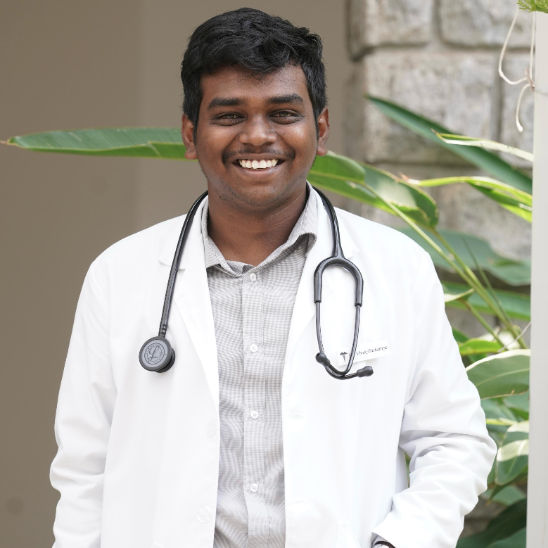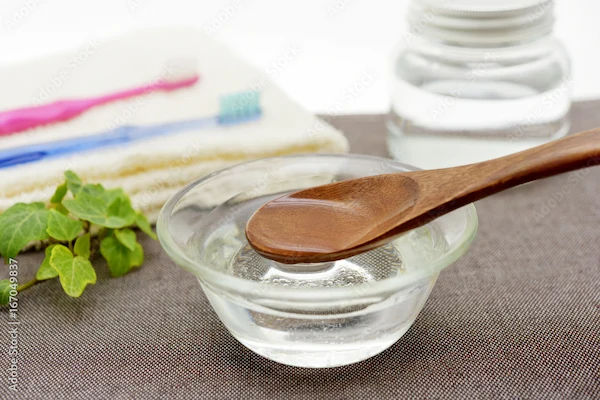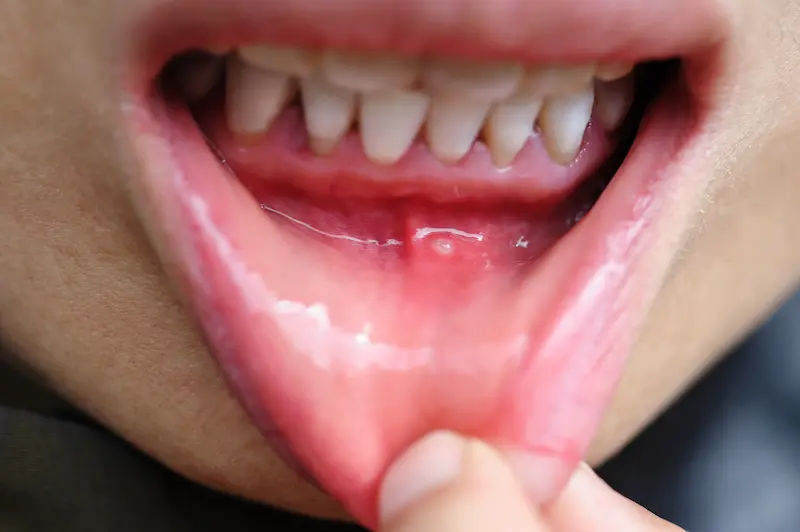Effective Home Remedies for Tongue Ulcers and Mouth Sores
Discover proven tongue ulcer remedies and gentle mouth sore treatment. Science-backed tips to ease pain, heal faster, and prevent future sores.

Written by Dr. M L Ezhilarasan
Reviewed by Dr. Shaik Abdul Kalam MD (Physician)
Last updated on 13th Jan, 2026

Introduction
Tongue ulcers and mouth sores are common, painful, and frustrating—but the good news is most heal on their own and simple home care can make you feel better fast. If you’re looking for tongue ulcer remedies or a gentle mouth sore treatment that’s safe and effective, this guide shares what really works based on trusted medical sources.
Most mouth sores (often called canker sores) are not contagious, unlike cold sores caused by the herpes simplex virus. They typically heal within 7–14 days. Good care can reduce pain, speed healing, and lower the chance they come back.
What Are Tongue Ulcers and Mouth Sores?
Tongue ulcers and mouth sores are small breaks in the lining of your mouth. The most common type, canker sores (aphthous ulcers), appear inside the mouth—on the tongue, cheeks, or gums. They may be triggered by minor injury (like biting your tongue), stress, hormonal shifts, certain foods, or nutritional deficiencies (such as iron, folate, or vitamin B12).
How Are They Different from Cold Sores?
Here’s the difference between tongue ulcers and cold sores:
• Canker sores form inside the mouth and are not contagious.
• Cold sores usually appear on or around the lips and are caused by herpes simplex virus (HSV-1), which is contagious.
If you have blisters on the lips with a burning or tingling sensation before they appear, that’s more likely a cold sore. For inside-the-mouth ulcers without blisters, canker sores are more likely.
Best Tongue Ulcer Remedies and Mouth Sore Treatment at Home
These science-supported steps can soothe pain and support healing. Use one or several, depending on what feels best for you. Here are some tongue ulcer remedies:
Saltwater Rinses (Simple and Reliable)
• How to do it: Dissolve 1/2 teaspoon of table salt in 1 cup (240 mL) of warm water. Swish gently for 15–30 seconds, then spit. Repeat 3–4 times per day.
• Why it helps: Saltwater is a gentle cleanser that can reduce irritation and keep the area clean.
Baking Soda (Sodium Bicarbonate) Rinse or Paste
• Rinse: Mix 1/2 teaspoon baking soda in 1/2 cup (120 mL) warm water. Swish and spit, 2–3 times daily.
• Paste: Mix baking soda with a few drops of water to form a paste. Dab a tiny amount on the sore for 30–60 seconds, then rinse.
• Why it helps: Baking soda may neutralise acids and reduce inflammation.
Cold Therapy
• How to do it: Suck on ice chips or sip cold water.
• Why it helps: Cold can temporarily numb the area and decrease inflammation.
Milk of Magnesia Dab
• How to use: After rinsing, dab a small amount directly on the sore 3–4 times daily.
• Why it helps: Acts as a protective coating and may reduce acidity.
Honey (Food-Grade, Pasteurised)
• How to use: With clean hands or a cotton swab, apply a thin layer of honey to the sore 2–4 times daily.
• Safety note: Do not give honey to children under 1 year old.
• Why it helps: Small clinical studies suggest honey can reduce pain and shorten healing time thanks to its soothing and antimicrobial properties.
Aloe Vera (Oral-Safe Gel)
• How to use: Apply a small amount of a product labelled safe for oral use to the sore 2–3 times daily.
• Why it helps: Aloe may soothe inflamed tissue. Evidence is limited but promising for some people.
Over-the-Counter Oral Anaesthetics (Short-Term Pain Relief)
• Options: Gels or liquids with benzocaine or lidocaine can numb the sore for eating and brushing.
• Use exactly as directed on the label. Do not use benzocaine in children under 2 years old.
• Warning: Stop and seek care if you notice blue/gray skin, shortness of breath, fatigue, or confusion (rare signs of methemoglobinemia).
• Tip: Apply after rinsing and before meals to make eating more comfortable.
Antimicrobial Mouthwashes (If Advised by a Clinician)
• Chlorhexidine gluconate mouthwash may reduce bacteria and inflammation; it can be prescribed in some countries. Short-term use is typical, and it may temporarily stain teeth.
• Diluted hydrogen peroxide rinse: Mix equal parts 3% hydrogen peroxide and water. Swish and spit—do not swallow—and avoid long-term use as it may irritate tissues.
Oral Pain Relievers (Systemic)
• Options: Acetaminophen or ibuprofen can help with pain. Use as directed on the label.
• Caution: Do not give aspirin to children or teens with viral illnesses due to the risk of Reye’s syndrome.
Gentle Oral Care Choices
• Use a soft-bristled toothbrush and floss gently.
• Consider an SLS-free toothpaste (sodium lauryl sulfate can irritate some people).
• If braces or dentures are rubbing, ask your dentist about dental wax or fit adjustment.Consult Top Specialists
Eating and Lifestyle Tips to Heal Faster
Here’s how having a healthy lifestyle to heal faster:
• Choose soothing foods: yogurt, smoothies, scrambled eggs, oatmeal, soft fruits, and well-cooked vegetables.
• Avoid triggers while healing: very spicy, acidic, salty, crunchy, or hot foods; alcohol; and tobacco.
• Keep your mouth moist: sip water frequently and avoid very hot drinks.
• Manage stress: sleep, gentle exercise, and relaxation techniques can reduce flare-ups for some people.
Prevention: Reduce the Chance of Future Sores
Here’s how to prevent the chance of tongue ulcers:
• Track your triggers: Keep a simple journal (foods, stress, menstrual cycle, new toothpaste or mouthwash) to spot patterns.
• Maintain good oral hygiene: Brush gently twice daily and floss once daily.
• Try SLS-free toothpaste if you often get sores.
• Balance your diet: Get enough iron, folate, and vitamin B12 from food or supplements if you are deficient. Talk with a clinician before starting supplements, especially high-dose ones.
• Address friction: Use dental wax on brackets or edges that rub your cheeks or tongue.
When to See a Dentist or Doctor?
Most mouth sores heal within two weeks. Seek medical or dental advice if you have any of the following:
• A sore lasting longer than 2 weeks or recurring very frequently
• Severe pain, spreading sores, or trouble eating or drinking
• Fever, rash, diarrhoea, weight loss, joint pain, genital ulcers, or eye symptoms along with mouth sores
• Very large sores, or sores that began after a new medication
• White or red patches, a lump, or a sore area that bleeds easily (especially if you use tobacco or drink alcohol)
• You are immunocompromised, having chemotherapy or radiation, or have significant medical conditions
• Children with persistent sores, signs of dehydration, or who cannot drink enoughConsult Top Specialists
Consult Top Specialists

Dr. Mohammed Kamran
General Practitioner
5 Years • MBBS, FIDM
Nashik
Apollo 24|7 Clinic - Maharashtra, Nashik

Dr Bhargav Vuppumalla
General Physician/ Internal Medicine Specialist
5 Years • MBBS MD GENERAL MEDICINE
Bengaluru
Apollo Medical Center, Marathahalli, Bengaluru
Dr P Sai Avinash
General Physician/ Internal Medicine Specialist
7 Years • MBBS
Bengaluru
Apollo Medical Center, Marathahalli, Bengaluru

Dr. Vivek D
General Physician
4 Years • MBBS
Bengaluru
PRESTIGE SHANTHINIKETAN - SOCIETY CLINIC, Bengaluru

Dr. Anand Ravi
General Physician
2 Years • MBBS
Bengaluru
PRESTIGE SHANTHINIKETAN - SOCIETY CLINIC, Bengaluru
Consult Top Specialists

Dr. Mohammed Kamran
General Practitioner
5 Years • MBBS, FIDM
Nashik
Apollo 24|7 Clinic - Maharashtra, Nashik

Dr Bhargav Vuppumalla
General Physician/ Internal Medicine Specialist
5 Years • MBBS MD GENERAL MEDICINE
Bengaluru
Apollo Medical Center, Marathahalli, Bengaluru
Dr P Sai Avinash
General Physician/ Internal Medicine Specialist
7 Years • MBBS
Bengaluru
Apollo Medical Center, Marathahalli, Bengaluru

Dr. Vivek D
General Physician
4 Years • MBBS
Bengaluru
PRESTIGE SHANTHINIKETAN - SOCIETY CLINIC, Bengaluru

Dr. Anand Ravi
General Physician
2 Years • MBBS
Bengaluru
PRESTIGE SHANTHINIKETAN - SOCIETY CLINIC, Bengaluru
More articles from Mouth UlcerMouth Ulcer
Frequently Asked Questions
Q1: Are tongue ulcers contagious?
Most canker sores inside the mouth are not contagious. Cold sores on or around the lips, caused by HSV-1, are contagious. If blisters are on the lips with a tingling/burning sensation beforehand, that suggests a cold sore.
Q2: How long do mouth sores take to heal?
Most heal in 7–14 days. Home care can help with pain and may shorten healing. If a sore lasts longer than 2 weeks, get it checked.
Q3: What’s the best mouth sore treatment for quick pain relief?
Short-term options include cold compresses or ice chips and OTC numbing gels (benzocaine or lidocaine) used as directed. Rinses (saltwater or baking soda) and dabbing milk of magnesia can also help.
Q4: Which foods should I avoid while I have a sore?
Avoid spicy, acidic (citrus, tomatoes), salty, crunchy, or very hot foods. Alcohol can sting. Choose soft, cool, and bland foods and drink plenty of water.
Q5: Do vitamins help prevent canker sores?
Deficiencies in iron, folate, or vitamin B12 can contribute to mouth sores for some people. Ask your clinician about testing before starting supplements. A balanced diet and treating any true deficiency can help reduce recurrences.


